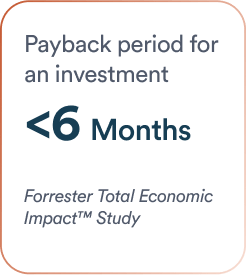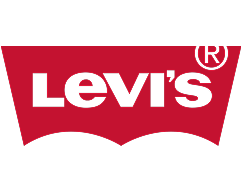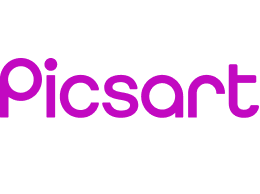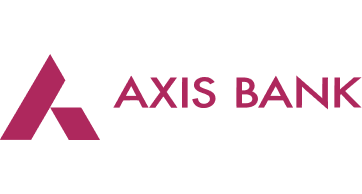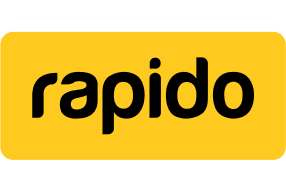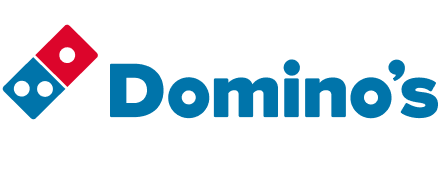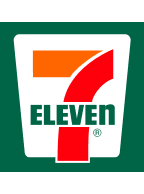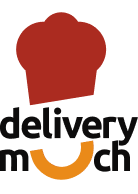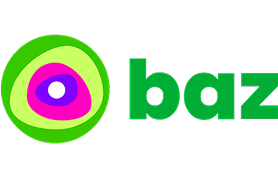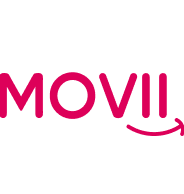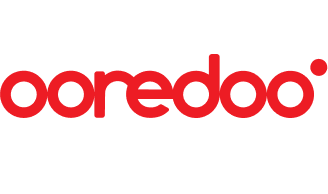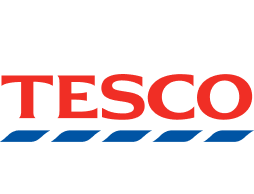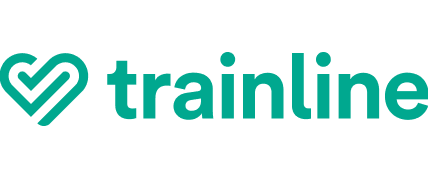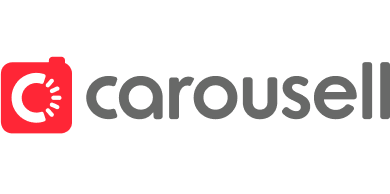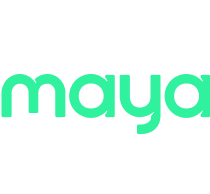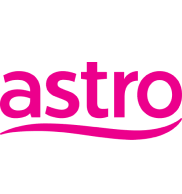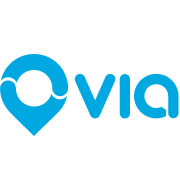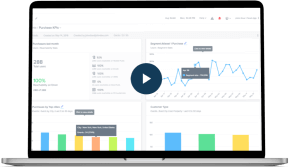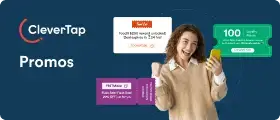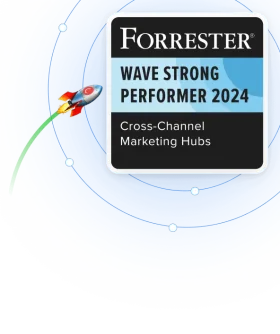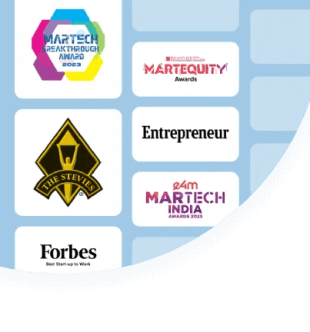So you’ve developed the next world-changing app? Right on.
Now all that’s left is getting it into the hands of users, but with over 5 million apps* between the App Store and Google Play, that’s no small feat.
The competition is relentless. Global app spend is projected to exceed $270 billion this year*, yet roughly 90% of downloaded apps are used just once* before being abandoned. Discovery is hard. Retention is even harder.
So how do you stand out, drive installs, and keep users coming back?
We’ve put together a definitive list of 20 mobile app marketing tactics, from acquisition to engagement and long-term retention. Keep reading for detailed strategies or jump ahead to the infographic for a quick overview.
What Is Mobile App Marketing?
Mobile app marketing is the discipline of acquiring, engaging, and retaining users within the context of a mobile application. It’s not limited to advertising or launch campaigns. It’s a comprehensive, full-funnel growth function that spans the entire app lifecycle, from awareness and install to onboarding, re-engagement, monetization, and churn prevention.
At its core, mobile app marketing connects the product experience with the customer journey. It involves orchestrating cross-channel campaigns (across push, email, in-app, SMS, and performance media), optimizing user flows within the app, and tailoring messaging to behavior, intent, and lifecycle stages.
In modern growth teams, app marketing isn’t a siloed function, it works hand-in-hand with product, analytics, and engineering to drive measurable outcomes like DAUs, retention curves, and revenue. And as platforms become more privacy-restricted and performance marketing more expensive, lifecycle-focused app marketing is emerging as a mission-critical investment for brands that want to build durable mobile businesses.
Why It’s Critical to Invest in App Marketing
Acquiring new users is getting more expensive, and keeping them is harder than ever. The average cost to acquire a loyal user has increased by over 30% in recent years, while retention rates continue to decline across nearly every app category.
Without a structured marketing strategy, even well-built, well-funded apps often fail to gain traction. Not just visibility, mobile app marketing is also about delivering connected, personalized experiences that move users from install to value, and from value to revenue.
How App Marketing Differs From Mobile Marketing
Mobile marketing casts a wide net, spanning mobile web, SMS, browser-based ads, and other device-targeted campaigns. It’s channel-agnostic and primarily focused on reaching users across various mobile touchpoints, regardless of whether they engage within an app or outside of it.
Mobile app marketing, by contrast, is entirely centered on the app ecosystem. It focuses on driving high-quality installs, accelerating in-app adoption, and building long-term usage habits. Unlike broader mobile marketing, app marketing leans heavily on lifecycle messaging, behavioral segmentation, and deep in-app engagement. It prioritizes retention and monetization over sheer reach. It’s inherently tied to lifecycle marketing, CRM, and product-led growth strategies that maximize customer lifetime value (LTV).
Losing users faster than you’d like? Learn how to stop mobile app churn.
How to Market an App: 20 Mobile App Marketing Strategies
To grow a successful app, you need more than a great product, you need a plan to reach users, capture their interest, and keep them coming back. Strong app marketing doesn’t rely on a single tactic. It brings together acquisition, onboarding, engagement, and retention into one cohesive strategy. The ideas below will help you create momentum at every stage of the journey.
Best App Marketing Strategies for User Acquisition
1. Build an App Landing Page
A strong landing page for your app is important, since your website is often the first impression of your business for many users. It can act as a “showroom” for your app, so make sure it’s clean, attractive, user-friendly, and works well across all browsers.
Robinhood is a good example of what a landing page for a mobile app should look like: uncluttered, a strong headline, body copy that clearly states what the application does, and an obvious call-to-action. The page’s images, graphics, and text encourage users to explore the app’s features, then download and ultimately use the app.
Landing pages are powerful promotional tools that often act as the starting point for a user’s journey.
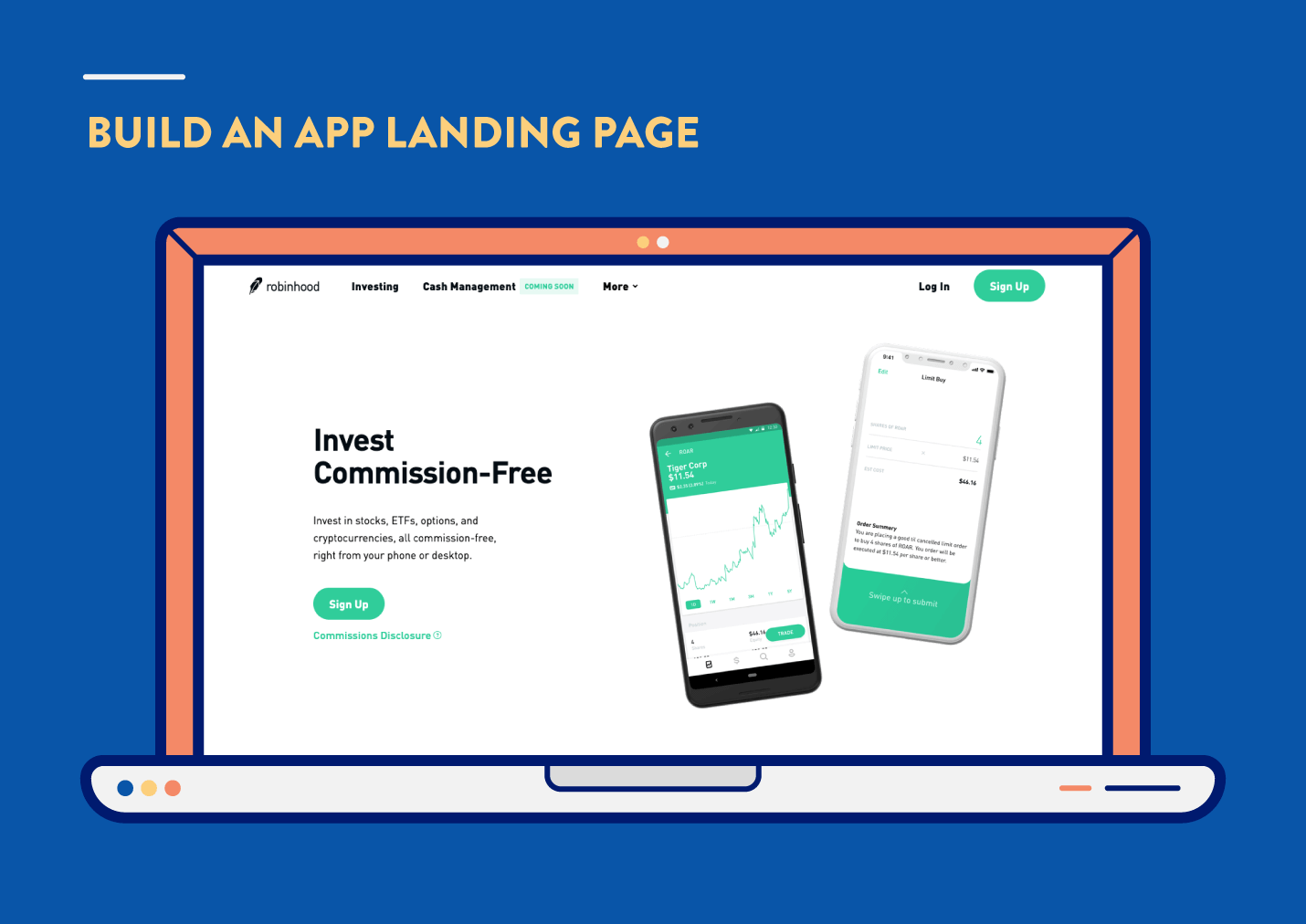
2. Optimize for App Stores
Just like you have to optimize your website to rank in search engine results, your app’s listing needs to be optimized to rank high in app store searches. The higher you rank, the more exposure you’ll get.
App store optimization (ASO) is a key part of your app launch marketing plan and is crucial to making your app stand out in a marketplace with over two million competitors.
3. Run App Store Ads
App store ads offer a shortcut to visibility. Even with solid ASO, paid ads help you appear at the top of relevant search results. Think of it like running Google Ads, but within app marketplaces.
Choose strategic keywords, pay-per-click, and place your app where high-intent users are actively searching. For instance, Trello runs ads for the keyword “to-do list,” putting itself in front of users with clear intent.
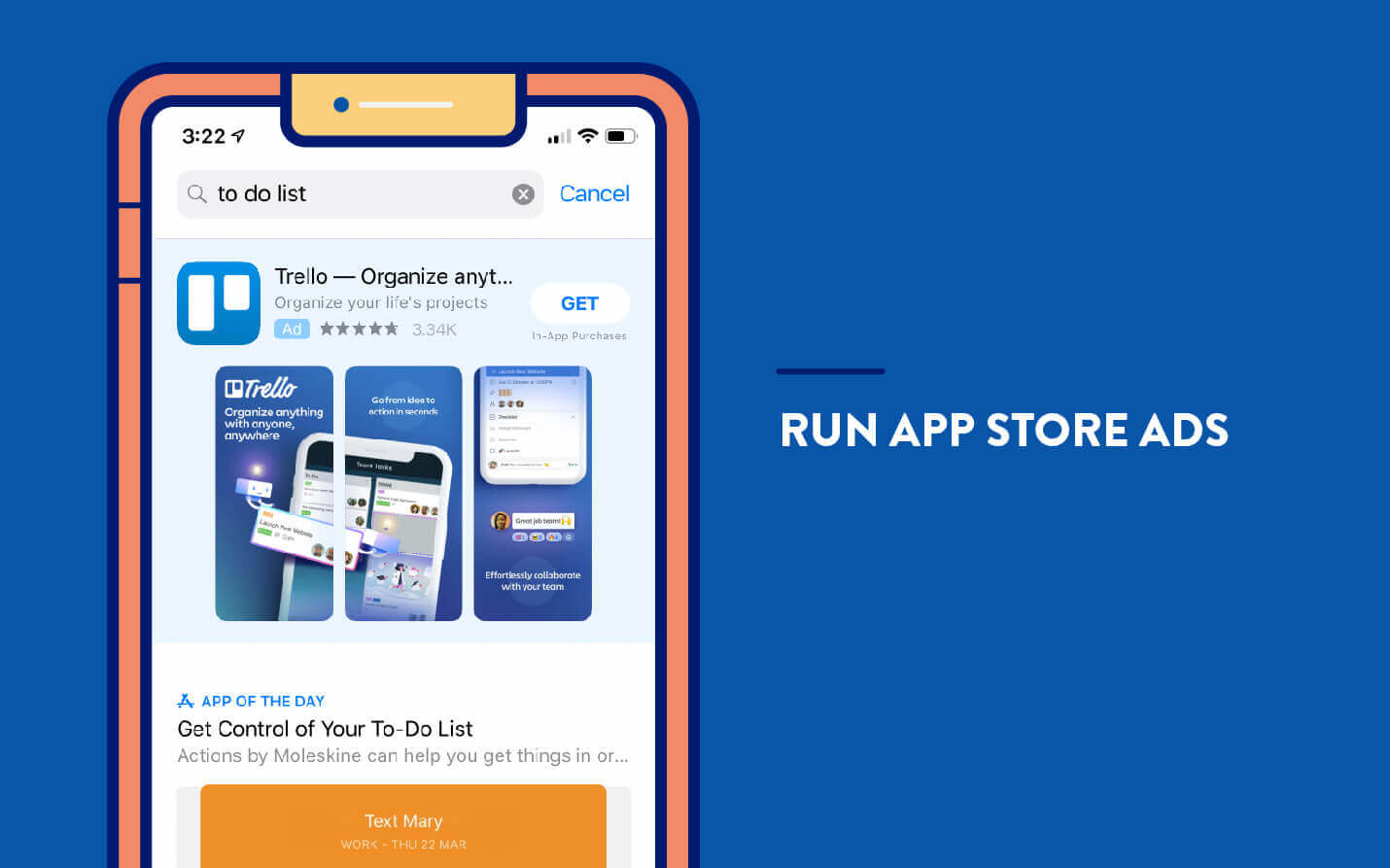
4. Get Your App Reviewed and Rated
Before most people make a new purchase, they’ll research to see what others think before making a decision. Apps are no different: reviews and ratings can help persuade potential new users to hit the download button.
Your app marketing plan should include encouraging current users to review your app. Build in features that make it easy for them to write a review, such as a rating prompt. You can also reach out to an informed, professional reviewer from an app-reviewing website for an even more credible (and visible) opinion.
Negative reviews aren’t all bad either, as long as you don’t take the criticism personally. Reading and responding to reviews can be a good source of new ideas, highlight areas for improvement, and show potential users that you’re engaged and listening.
5. Captivate Your Audience With Video
Video continues to dominate content consumption and remains one of the most effective ways to showcase app value across social platforms. Create videos that you (and your users) can share on platforms like YouTube, Vimeo, Instagram, and Facebook.
Venmo has a great mobile app marketing strategy around video, and their content is short, descriptive, and still makes sense when muted.
Videos can range from tutorials to content that builds brand identity. Keep them concise (under 60 seconds), visually engaging, and ensure the CTA is clear even without audio.

6. Create a Press Kit
Your app marketing plan should include a professional press kit, something you can share instantly when a journalist or blogger shows interest.
Control your brand image by curating the assets they’ll use: branded screenshots, high-res logos, app icons, company bios, product descriptions, social media links, and past press coverage.
Turo, a peer-to-peer car rental app, sets a great example with a dedicated page where media outlets can download factsheets, logos, and imagery directly from their website.
7. Publish Press Releases
Press releases are a tried-and-tested way to generate awareness and show momentum. Use them to announce product launches, new features, partnerships, or funding rounds.
A well-written release communicates who your app is for, what it does, and why it matters. It also helps shape public perception and supports SEO when distributed through high-domain outlets.
8. Drive Downloads with App Install Ads
App install campaigns help you target users where they spend time: social feeds, search engines, and content platforms. These ads are tailored to one objective: get more installs.
Bid on keywords and set up targeting based on interest, demographics, or behavior. Postmates and BetterMe, for instance, use install ads on Pinterest and Snapchat to reach niche audiences looking for delivery and wellness solutions.
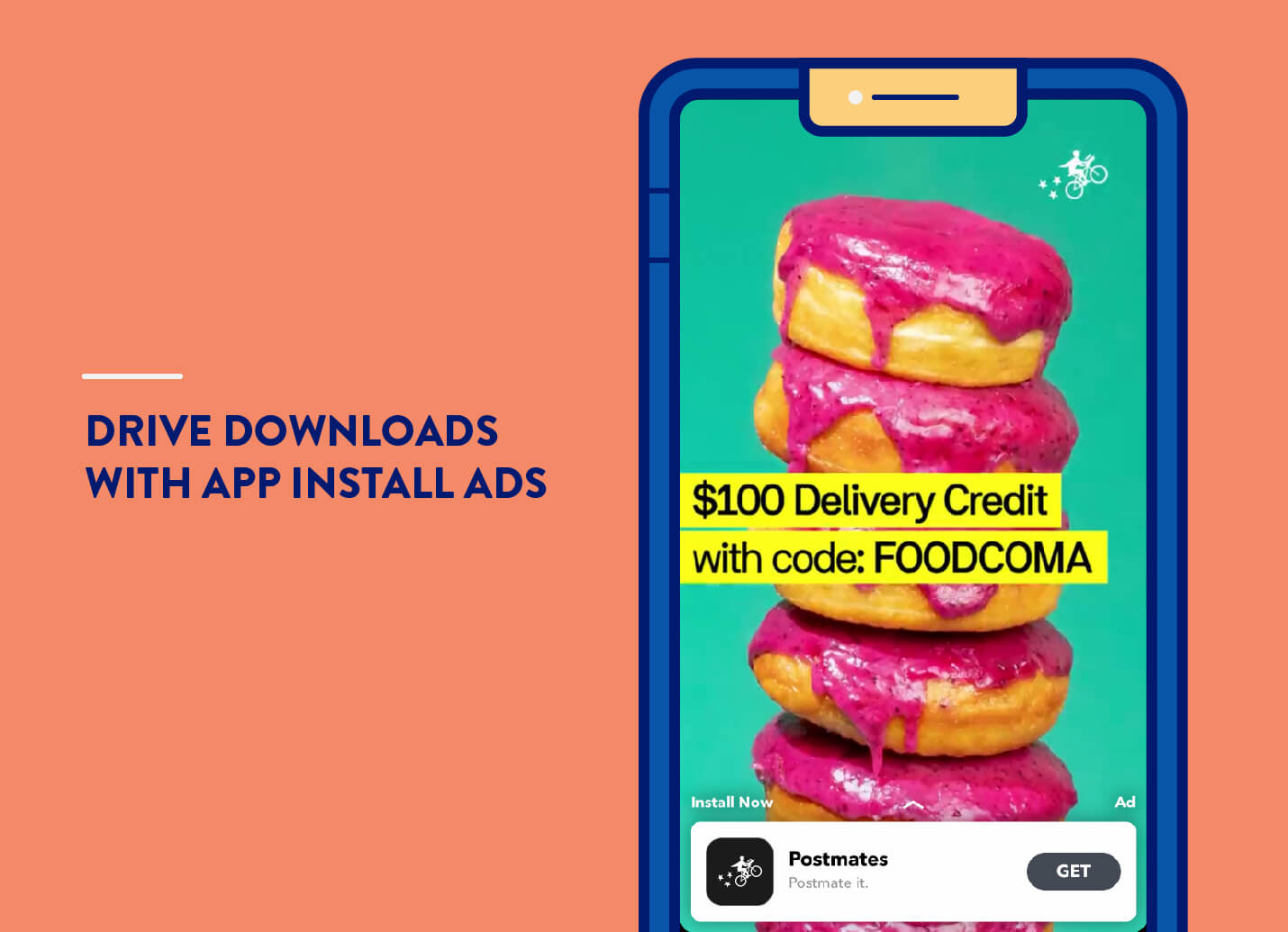
9. Utilize the Viral Loop
Viral loops are great tools to increase the number of users for your mobile app. Create something worth sharing, such as high scores or shared experiences, and make it easy for users to spread the word about how great your app is.
Viral loops help spread the word because they invert the traditional marketing funnel, enabling your users to market your app for you. Viral loops can be created through smart app design: include incentives, invitation-only features, shared experiences, and referral mechanics to set the loop in motion.
Companies like Dropbox, which gave away 16 GB of storage space when users invited friends, and Candy Crush, which allowed users to share their scores, have used viral loops to grow their brands exponentially.
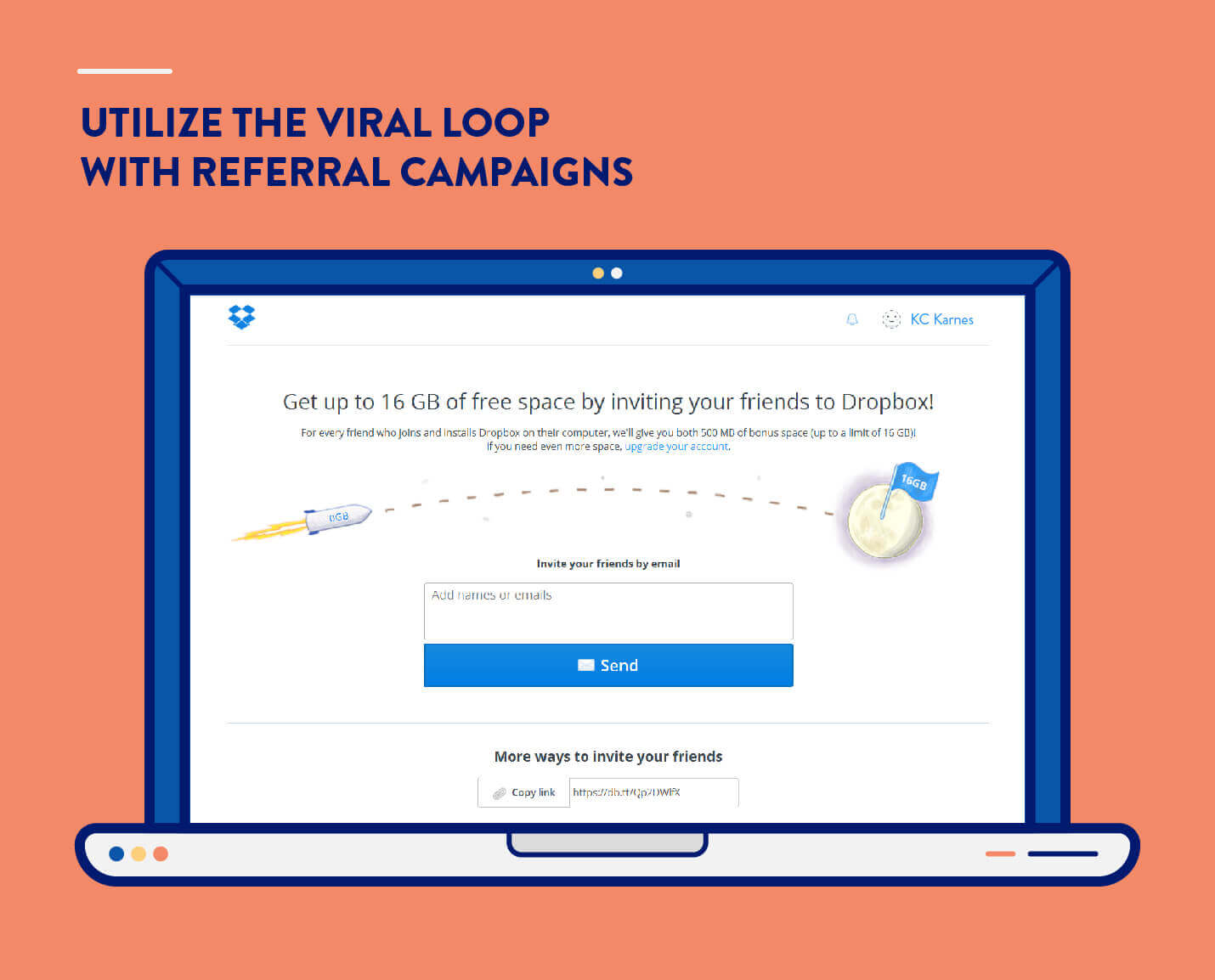
10. Create an Affiliate Program
Affiliate programs reward third parties who bring in users through tracked links. Unlike viral loops, which are product-led, affiliate programs are incentive-led, typically offering cash, credits, or tiered rewards.
Shopify’s affiliate model stands out: high commission rates, ready-to-use content, and personal support make it easy for creators to advocate for them. For mobile apps, this strategy can deliver high-intent traffic with relatively low upfront cost.
11. Get Help From Influencers
Influencers are effective not just because of their reach, but because of the trust they’ve built with niche audiences. You don’t need celebrity endorsements, micro-influencers can drive high-quality traffic if their followers align with your app’s use case.
Bumble’s “Anne Smith” campaign used hyper-local micro-influencers (under 1,000 followers) to reach campus communities and encourage women to #MakeTheFirstMove. The result? Over 40 million users and a brand built on grassroots momentum.
12. Use Out-of-Home (OOH) for Regional Impact
Out-of-home ads still work but only when they’re part of a well-targeted regional push. Billboards, subway ads, digital kiosks, and transit wraps can drive installs in cities where your app is launching or scaling.
This strategy works best when paired with hyperlocal targeting, PR, and digital retargeting. For instance, Uber used OOH heavily in its early rollout cities to normalize ridesharing and build trust, while Calm used transit ads in metro areas to build top-of-funnel awareness for wellness seekers.
13. Have a Social Media Presence
If your brand isn’t active on social media, it’s missing a massive discovery channel. Platforms like Instagram, LinkedIn, and X help build awareness and engagement while giving you a direct line to your users.
More than just broadcasting updates, use social media to listen. Monitor audience behavior, reshare user-generated content, and join conversations.
Airbnb does this exceptionally well by consistently sharing user stories and community images that resonate with both their brand and audience.
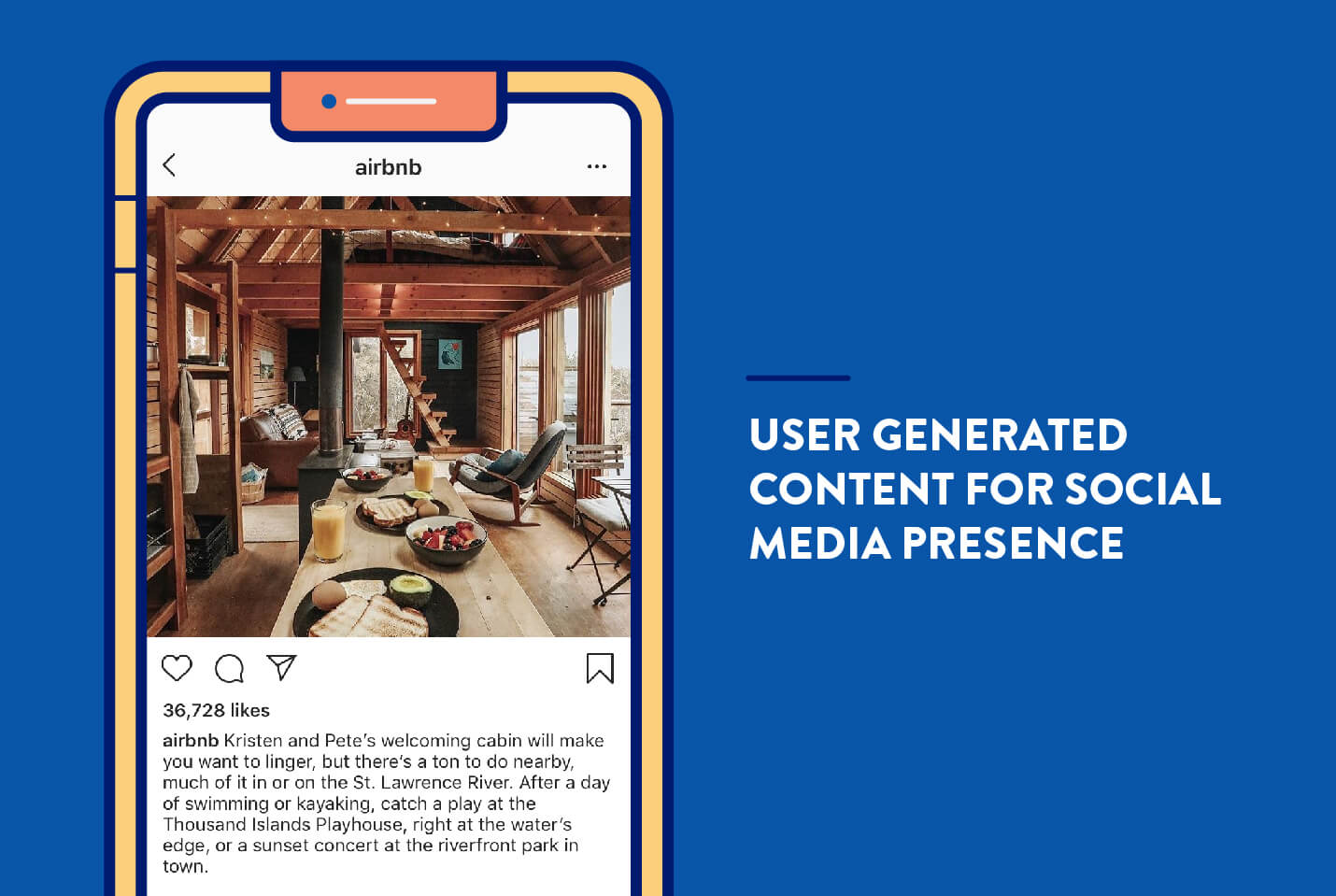
Best Strategies to Boost Activation and Onboarding
14. Personalize Onboarding by Acquisition Source
Not all new users have the same motivation. A user coming in from a discount ad may be deal-driven, while a referral might be more trust-led. Showing them a generic welcome flow risks early drop-off.
Use CleverTap to create dynamic onboarding journeys tailored to acquisition source, UTM parameters, or user attributes, so each user sees messaging, screens, or offers that match their expectations.
This level of personalization significantly improves Day 1 retention and ensures your activation experience feels thoughtful, not one-size-fits-all.
15. Deep Link Your Campaigns to Key In-App Actions
A common mistake in app marketing is dropping users onto a generic home screen after they click an ad. Instead, deep linking allows you to send them directly to a high-intent screen, like a special offer, content category, or feature page, based on the context of the campaign.
This reduces friction, accelerates time to value, and increases conversion rates from install to engagement.
CleverTap enables intelligent deep linking by combining user properties, lifecycle stages, and campaign data to ensure every tap leads to a meaningful destination.
Best App Marketing Strategies for Engagement and Retention
16. Offer Free Trials, Contests, and Giveaways
Promotions lower the barrier to entry and spark immediate interest. Whether it’s a free trial, a limited-time discount, or a user-generated content contest, these tactics encourage users to try your app without risk.
Spotify, YouTube, and Netflix all use free trials to hook new users, giving them time to experience value before committing. Contests can also boost social sharing, app installs, and engagement when paired with rewards.
17. Use Behavioral Cohorts to Drive Retention Strategy
Not all churn is equal. Some users leave after a single session, while others fade after two weeks of low engagement. Behavioral cohorts allow you to group users by what they did (or didn’t do), such as completing onboarding, using a core feature, or hitting a frequency threshold.
With CleverTap’s cohort analysis, you can isolate high-retention behaviors and build automated journeys to encourage those actions early in the lifecycle.
This insight lets you shift from reaction-based campaigns to behavior-driven retention modeling.
18. Automate Lifecycle Campaigns with Predictive Segments
Manual segmentation only goes so far. Predictive analytics lets you anticipate what a user is likely to do next, whether that’s uninstall, upgrade, or become inactive, and engage them before it happens.
CleverTap automatically calculates conversion and churn probabilities, allowing you to build preemptive campaigns that are triggered by these scores.
For example, if a user shows signs of declining engagement, you can trigger a personalized push or email with a timely offer or reminder, increasing the chance of retention.
19. Run Paid Campaigns for Each Lifecycle Stage
Paid media shouldn’t end at the install. Some of the highest-return campaigns target users further down the funnel, like those who abandoned onboarding, stopped engaging, or are at risk of churn.
With CleverTap, you can segment users by behavior and lifecycle stage, and sync those segments with ad platforms to run reactivation, win-back, or upsell campaigns.
This makes your paid budget go further by ensuring you’re not just acquiring users, but also re-engaging the ones who already showed interest.
20. Test and Optimize with Experiments
Testing is the backbone of sustainable app growth. From onboarding flows and pricing screens to notification timing and button copy, small changes can yield big performance improvements.
CleverTap’s built-in A/B testing capabilities let you experiment across push, in-app, and journey flows, comparing results by cohort, behavior, or segment.
This lets you move from gut-driven decisions to data-backed optimization, ensuring that every part of your app experience is tuned for performance.
21. Measure Your Key Performance Indicators
No strategy works without tracking. Monitor KPIs like downloads, daily active users (DAUs), retention rates, stickiness (DAU/MAU ratio), and churn.
These metrics help you understand what’s working, what’s not, and where to optimize. Use the insights to adjust your marketing mix, messaging, and user experience based on real data, not gut feel.
Best App Marketing Strategies for Content and Brand Growth
22. Blog Regularly
A consistent blog builds authority, supports SEO, and gives you ongoing content for email and social media. Businesses that blog generate 126% more leads than those that don’t.
Use your blog to showcase product updates, offer how-to guides, or explore topics your users care about. Keyword research is essential, create content around search terms your audience is actively looking for.
DoorDash runs an effective blog that shares updates, product tips, and stories from real users, showing both value and personality.
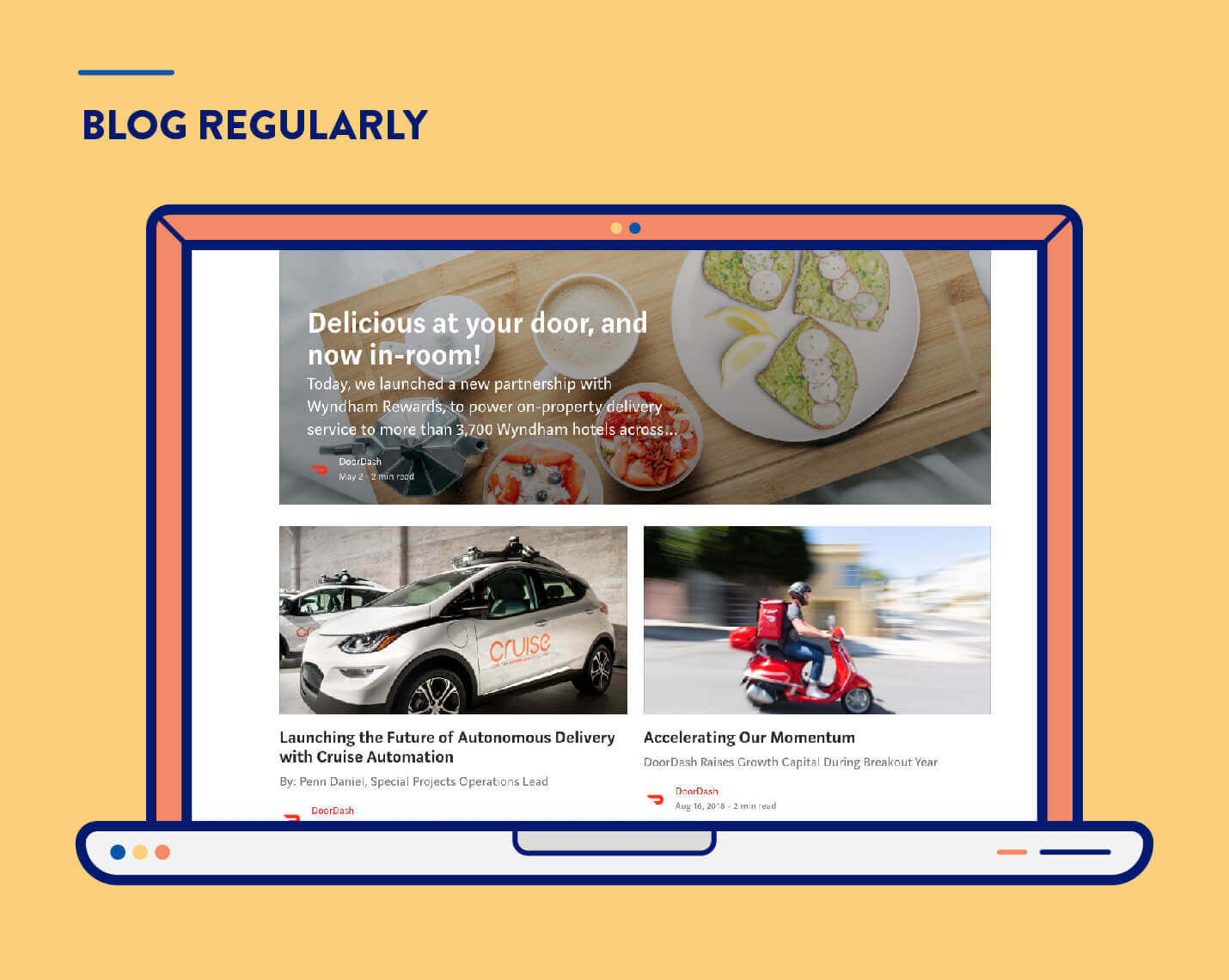
23. Develop a Content Marketing Strategy
Content marketing isn’t just blogging, it includes video, infographics, social series, customer stories, webinars, and more. The goal is to educate, entertain, and inspire users across different stages of the funnel.
Evernote exemplifies this with content on productivity, goal-setting, and user interviews that appeal to both prospects and power users. A cohesive content strategy builds brand equity and reinforces the value of your app.
24. Turn Founders and Experts Into Growth Channels
Personal brands often outperform corporate accounts. Leverage your founder, product leaders, or internal experts as advocates on platforms like LinkedIn, X (Twitter), or TikTok.
Encourage them to publish stories about your mission, app-building journey, or industry hot takes. Done right, these voices feel more human, relatable, and authentic, especially in noisy verticals like productivity, finance, or wellness.
Example: Notion’s growth benefited hugely from team members sharing build-in-public content and productivity frameworks via Twitter threads and YouTube.
25. Find a Partner to Cross-Promote
Cross-promotion helps you tap into complementary audiences. You promote their app, they promote yours, usually through in-app placements, emails, or social posts.
The key is alignment. Look for partners whose product solves a related need but doesn’t directly compete. McDonald’s and Uber Eats executed this strategy effectively, running co-branded campaigns that benefited both parties.
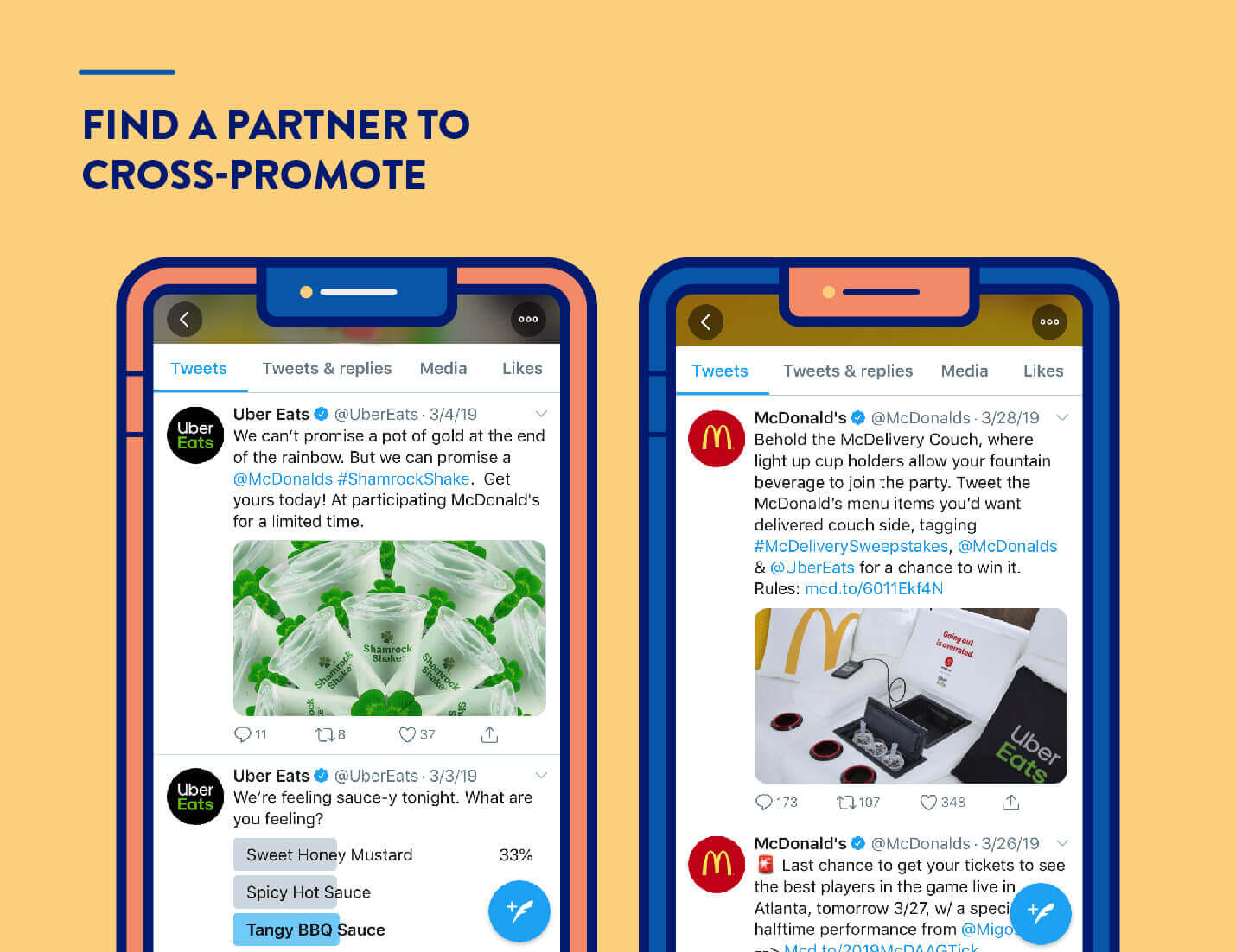
How to Start With Mobile App Marketing and Why You Need a Plan
Before you run your first campaign or push your app live, you need a plan. Not a set of disconnected tactics, but a clear framework that ties your marketing efforts to real business goals. Without it, you risk burning through budget without knowing what’s working or why users aren’t sticking around.
Here’s what to get in place before you start:
Set Clear Goals
Start with clarity on what success looks like. Are you trying to hit 50,000 installs? Improve retention in the first week? Drive revenue from a specific segment?
Set metrics that go beyond vanity downloads. Think Day 1 retention, LTV, stickiness, referral rates, or active subscriptions. The more specific you are, the easier it is to prioritize the right channels and campaigns.
Know Your Audience
Skip the generic personas. Focus on who your real users are, why they’d care about your app, and what pain points you’re solving.
Understand how different user groups behave, where they come from, and what gets them to convert. That insight should shape everything, from your ad messaging to your onboarding flow.
Pick the Right Mix of Channels
A smart plan balances scale with sustainability. That usually means combining:
- Paid channels like install ads or influencer campaigns
- Organic tactics like ASO, SEO, and social content
- Owned channels like push, in-app messages, and email
Don’t go all in on one lever. Instead, test a few early bets and double down on what drives both acquisition and retention.
Build Momentum Before Launch
Don’t wait until launch day to start marketing. Create early interest with a landing page, teaser videos, or waitlists. Run closed beta programs. Seed early users through communities or micro-influencers.
This isn’t just about hype, it helps you gather feedback and gives your app a warm start from day one.
Plan for Post-Launch from the Start
What happens after someone installs? If you don’t have a follow-up plan, you’ll lose them fast.
Set up onboarding journeys, welcome sequences, and behavior-based messages in advance. Build automated flows that respond to how users interact with your app, not just when they open it.
With a platform like CleverTap, you can tie all of this together, personalizing journeys, triggering campaigns at the right time, and tracking what’s driving growth.
Stages of Mobile App Marketing Strategy
A well-run app marketing strategy follows the user journey, from first touch to long-term value. Each stage calls for a different set of tools, messages, and metrics. Here’s how to think about the mobile app marketing lifecycle in three distinct stages:
1. Awareness
The goal here is to make the right people aware that your app exists and why it matters.
This starts well before launch. Use PR, influencer collaborations, and social content to create buzz. Run teaser campaigns. Publish behind-the-scenes updates. Seed early access with communities or beta testers.
You’re not selling the app yet, you’re building curiosity and positioning it as something worth watching.
2. Acquisition
Once you have attention, the next job is conversion.
Here’s where your ASO needs to be tight. Your app store listing, copy, keywords, and visuals should be optimized for relevance and ranking. Use install ads, referral incentives, and landing pages to turn interest into installs.
Make sure your campaigns are set up with deep links, attribution, and cohort tracking so you can tie every channel back to outcomes.
3. Retention
This is where most apps lose users, and where growth is either compounding or collapsing.
Retention starts with onboarding: personalized, frictionless, and value-driven. From there, you need CRM-led automation, push notifications, in-app messages, emails, that respond to what users do (or don’t do) in real time.
Use cohort analysis to understand drop-off patterns and content gaps. Then build lifecycle journeys that keep users engaged and moving toward meaningful actions.
How CleverTap Powers Scalable and Intelligent App Growth
A powerful app marketing strategy requires more than ideas. It demands precise execution and intelligent automation. CleverTap, the world’s #1 all-in-one customer engagement platform, empowers brands to drive sustainable app growth using real-time insights, AI-driven personalization, and omnichannel experiences across all customer lifecycle stages.
1. Precision Targeting Through Advanced Behavioral Segmentation
CleverTap enables marketers to segment users in real-time based on deep behavioral data such as usage frequency, recency, and transaction value. AI-powered models like RFM analysis and intent-based segmentation help identify loyal users, churn risks, and high-value prospects. CleverTap’s TesseractDB™ retains up to 10 years of user data and supports unlimited events, enabling marketers to instantly create precise, actionable segments across every stage of the user lifecycle.
2. Omnichannel Messaging at Scale, in Real-Time
CleverTap allows brands to engage users seamlessly across 15+ channels, push notifications, email, in-app, SMS, WhatsApp, and web, from a single platform. Campaigns are triggered in real time by user behavior, ensuring timely, relevant messaging. With proprietary tech like RenderMax™, push notification render rates reach up to 90%, overcoming OEM delivery restrictions and increasing reach and ROI.
3. Intelligent Journey Automation Powered by AI
CleverTap’s journey builder lets marketers create automated campaigns that respond instantly to user activity. IntelliNODE, powered by Clever.AI, continuously experiments with message paths to guide users through the most effective journey for conversion and retention. From onboarding to reactivation, journeys are optimized in real-time without constant manual adjustment.
4. Hyper-Personalization at Every Touchpoint
CleverTap personalizes each interaction using real-time behavior, profile attributes, and psychographics. Content and timing are dynamically adapted using Clever.AI tools like Scribe, which generates high-converting copy. Across push, WhatsApp, email, and in-app channels, users receive messages that reflect who they are and what they’re doing, leading to stronger engagement and loyalty.
5. Actionable Analytics with Real-Time Attribution
CleverTap provides deep insights into user behavior with Funnels, Cohorts, Flows, and Real Impact Dashboards. These tools help marketers understand drop-offs, optimize conversion paths, and measure true campaign ROI. Most importantly, analytics are interactive; teams can segment users or launch campaigns directly from reports, accelerating the decision-to-action loop.
Power smarter engagement, higher retention, and faster growth with CleverTap.
Conclusion
The most successful apps aren’t the ones with the biggest budgets or the flashiest launches. They’re the ones that treat growth as a discipline, rooted in data, driven by experimentation, and built to scale.
Marketing an app today means thinking beyond installs. It means designing every touchpoint to move users closer to value, and every campaign to deepen engagement over time. That requires more than tools, it takes a clear strategy, continuous iteration, and a deep understanding of your users.
CleverTap gives you the infrastructure to make that happen, combining intelligence, automation, and real-time insights in one platform. So whether you’re launching your first app or scaling your hundredth, you can grow with confidence, speed, and impact.
Want to see how it works? Schedule a demo and explore what CleverTap can do for your team.
Subharun Mukherjee 
Heads Cross-Functional Marketing.Expert in SaaS Product Marketing, CX & GTM strategies.
Free Customer Engagement Guides
Join our newsletter for actionable tips and proven strategies to grow your business and engage your customers.



